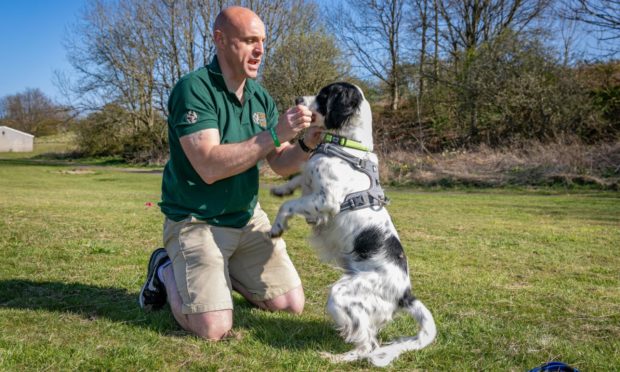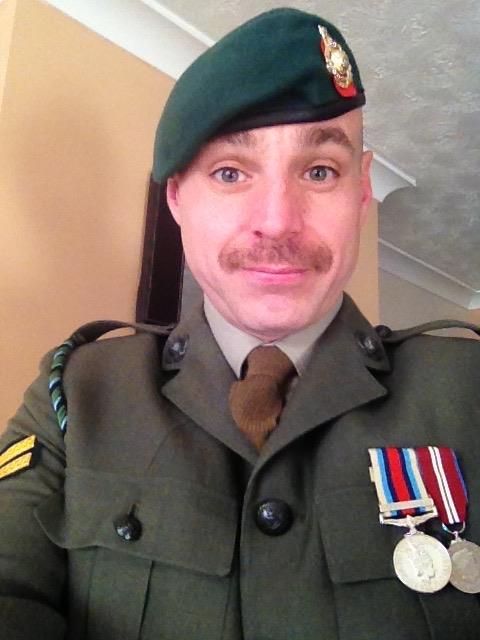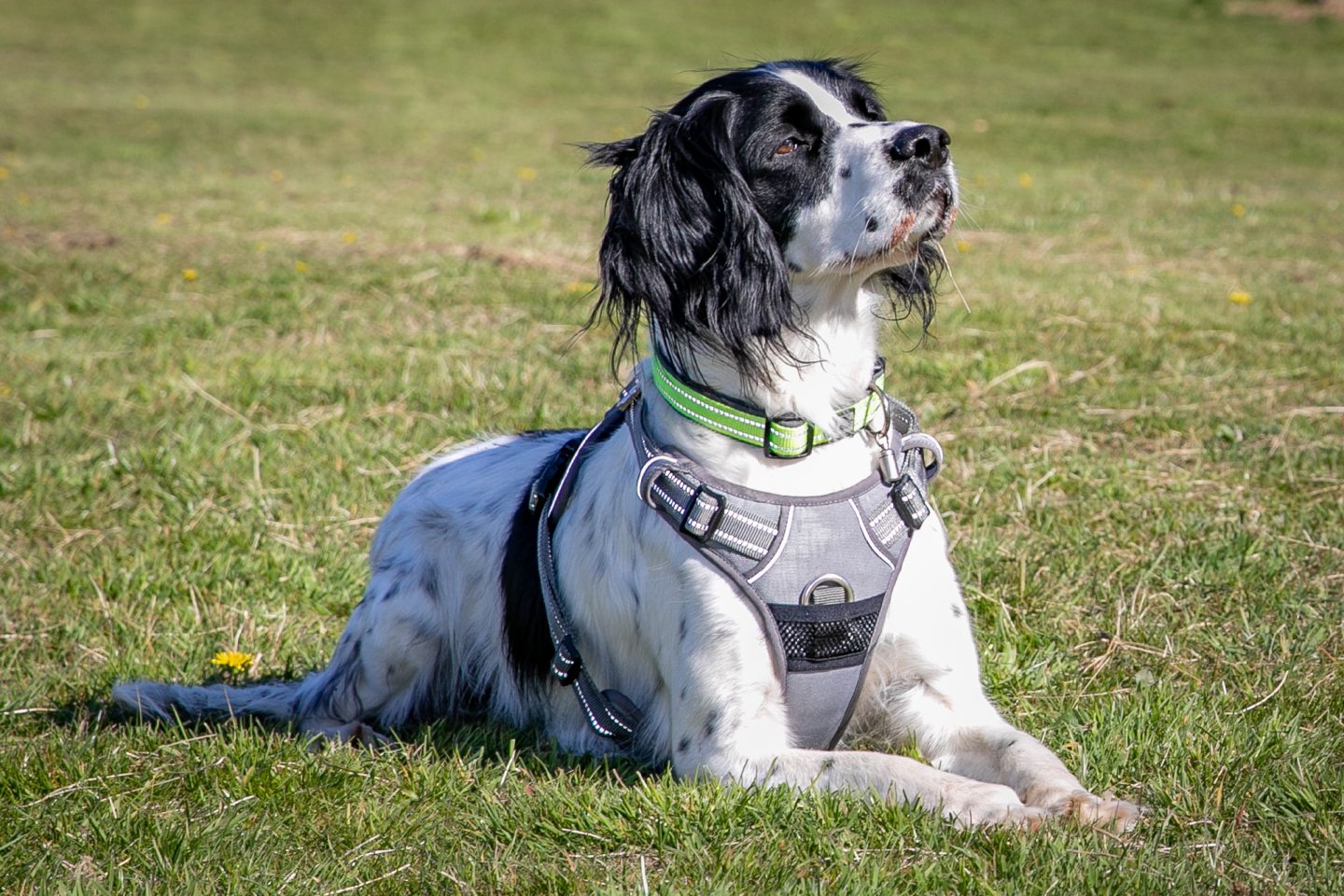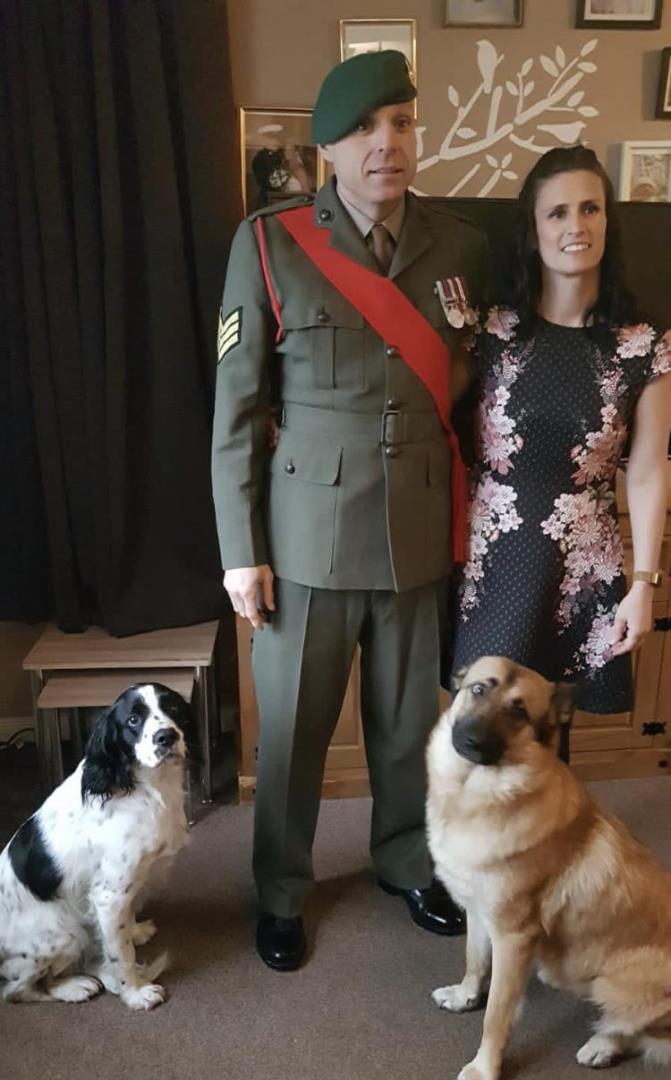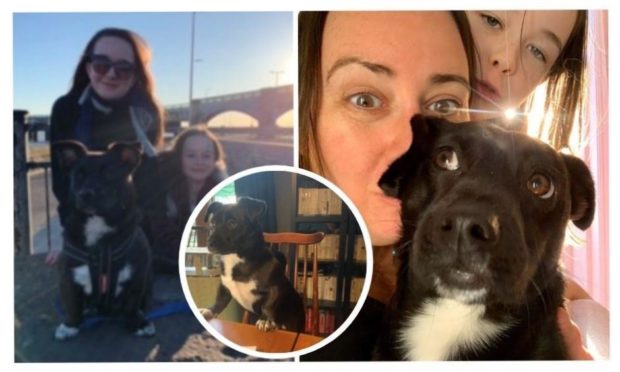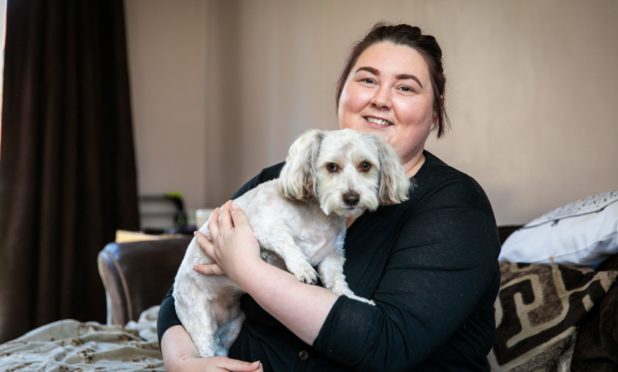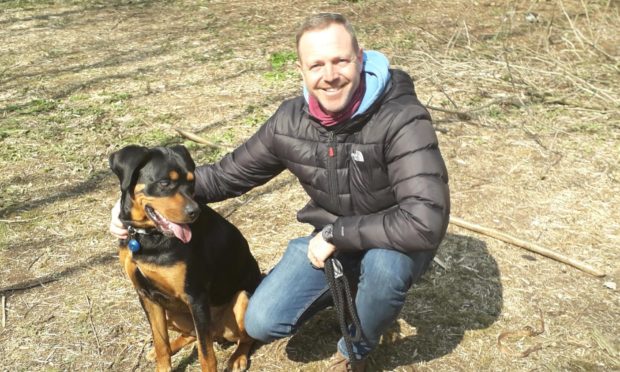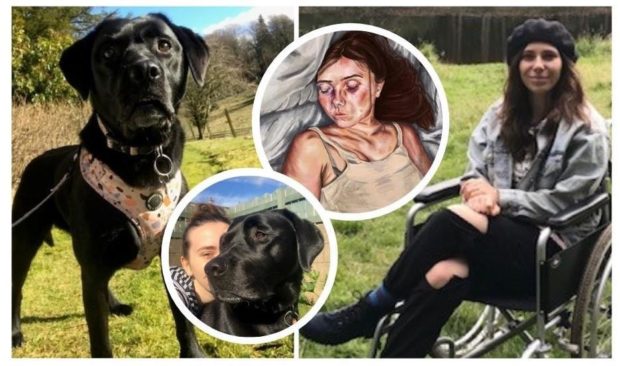Mick Cairns had endured one of the most traumatic days of his life when he was “blown away” by the discovery of a sixth sense in his dog.
It was February 2019 and the Fife man was a sergeant at 45 Commando Royal Marines in Arbroath when he experienced what he describes as a “breakdown”.
That morning Mick was “in bits” while telling his wife Maura-Ann on the phone that he was finding it hard to cope.
He pondered handing in his notice after 16 years as a serviceman but saw a priest who persuaded him to delay until he was in a better place mentally.
The father-of-five then broke down in front of a doctor, who put him on medication and told him to spend the rest of the day at home.
When finally Mick made it back to the family home in Kelty he was left amazed by the reaction of his dog Sam, a rescue Springer-Cocker cross.
“I walked in that day and was just standing there,” Mick says. “He looked at me and he kept tilting his head to the side, as if to ask ‘what is wrong with you?’
“So he was reading me. When people get stressed their adrenaline levels jump and they release cortisone. He sensed it.
“After he kept looking at me I looked at him and he jumped up onto me, which is a reaction he never usually gives.
“I was blown away by that. I have always thought dogs have a sixth sense and this was proof.
“I wanted to learn more.”
This moment set Mick, now 42, onto a path that would lead to him creating A Veteran’s Best Friend (AVBF), a charity that aims to provide assistance dogs to Armed Forces veterans using rescue dogs.
‘Leaving my family was horrible’
Mick joined the Royal Navy in 2003 but always wanted to be in the marines, which he duly accomplished two years later after working on his fitness.
While serving in Afghanistan in December 2011 he experienced a “traumatic event that changed my life” and led to him getting post-traumatic stress disorder (PTSD).
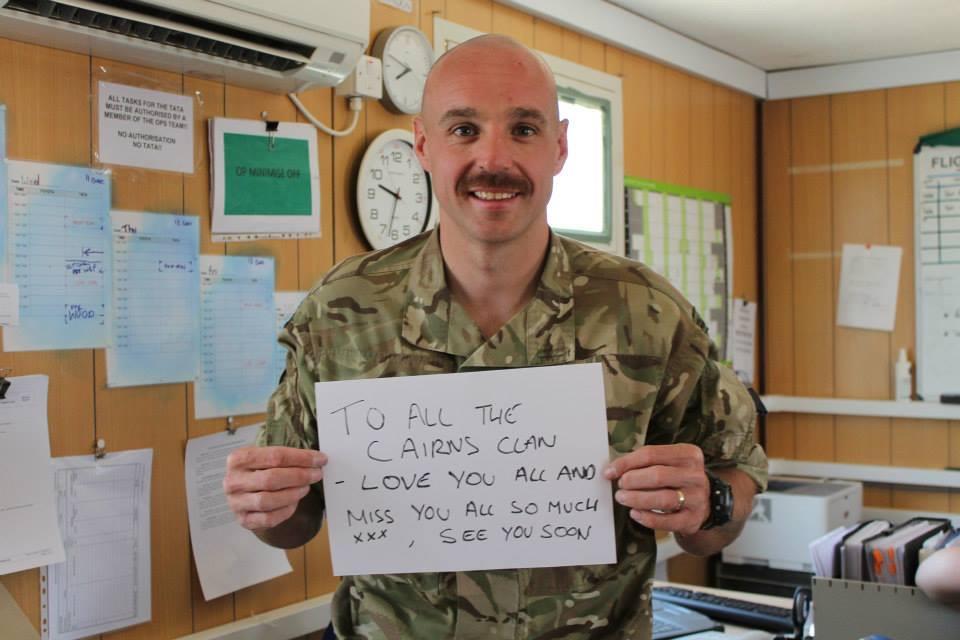
Mick, who was born in Irvine, also struggled with being away from Maura-Ann and children for long periods.
“Leaving my family was horrible,” he recalls. “When you’re saying goodbye to your children at 3am while they’re sleeping you have no idea if you’re going to return and see them again.”
Thankfully Mick returned unhurt physically but mentally he was suffering.
“I turned to booze,” he says. “My wife noticed the changes. I was drinking pretty much every day but it was not something I did when I woke up.
“It was to help me get to sleep so I wasn’t thinking about everything.”
Rescue and assist
Ironically, the breakdown happened after Mick stopped drinking and learnt Krav Maga, a form of self-defence that boosted his confidence.
“I wanted to be the best I could be with Krav Maga and became an instructor eventually.
“But my symptoms got worse as not drinking had a detrimental effect on my sleep pattern.”
But at least by the time of his breakdown he had Sam, who he got in December 2016 – six months before moving to Kelty.
“I have always loved dogs but not had many because being in the forces meant moving around.”
The breakdown led to many elements of self-discovery. As well as PTSD Mick was diagnosed with ADHD which, he says, helped explain his challenges as a youngster growing up in Saltcoats.
He also volunteered for the Bravehound charity, where he learnt how to be a PTSD assistance dog trainer.
“Sam was with me throughout,” he says. “I am passionate about using rescue dogs because people think they are broken and troubled when that is not always the case.
“There’s no reason why they can’t be assistance dogs.”
‘These dogs are a lifeline’
By the time Mick retired from the marines in December 2020 he had set up AVBF, which aims to link armed forces veterans with rescue assistance dogs.
“The dogs will be trained to the same standard as guide dogs for the blind, which means helping people use public transport and undertaking actions specific to the service user.
“For example, if someone has PTSD and doesn’t want to be in crowds the dog can act as a block to stop people getting too close.”
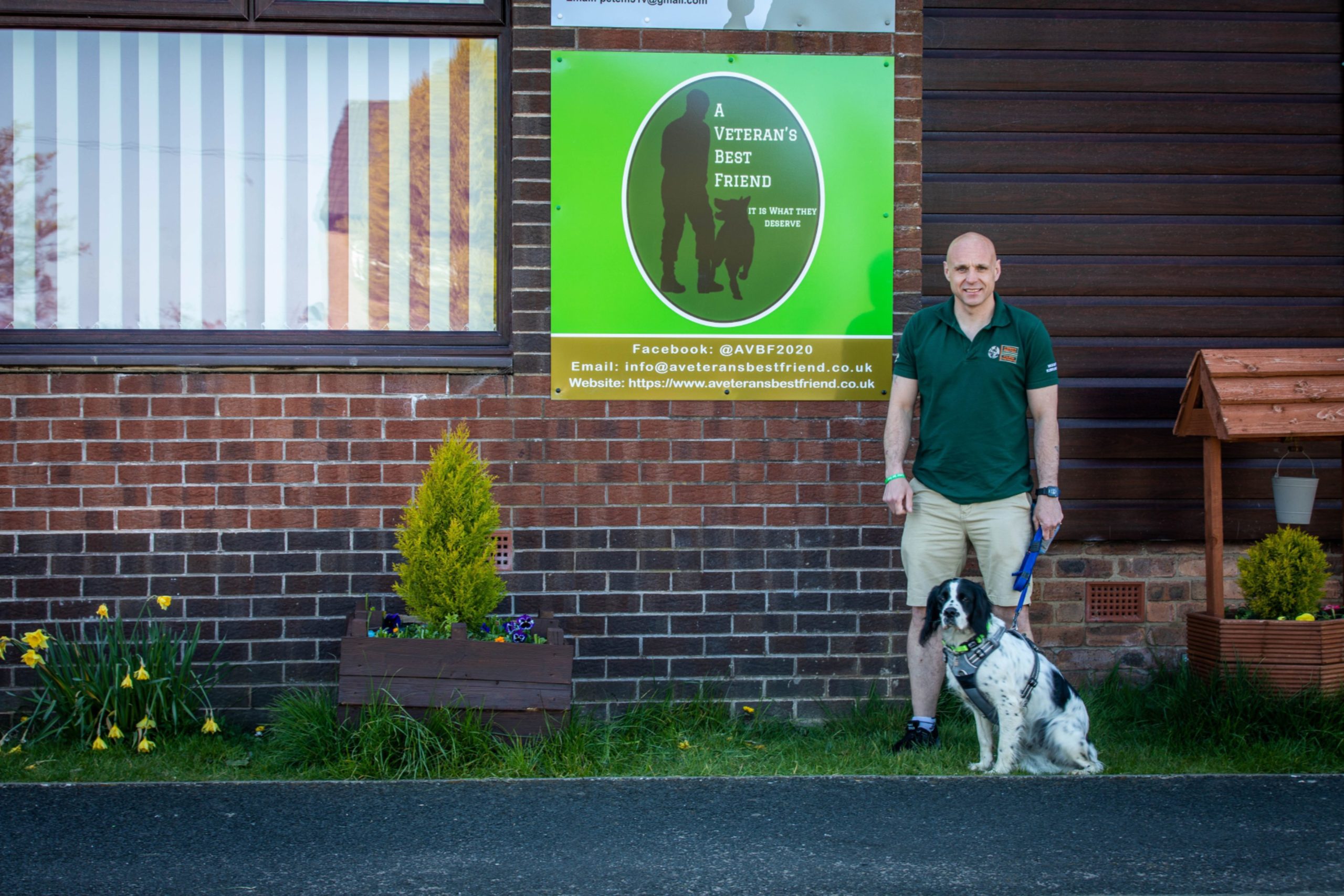
AVBF is working with rescue charity Parrera Dogs UK and the Linton Lane Community Centre in Kirkcaldy to train and eventually pair dogs with veterans.
“We have four people who will have dogs in the first year and I can see it getting bigger in the future.
“These dogs are a lifeline to a veteran and will go everywhere with them. They will help prevent social isolation for some of the guys who have mental health problems.”
Mick, who now works part-time training lorry drivers, has come a long way on his own mental health journey – and Sam, who is now five years old, has been there throughout.
“To this day he still helps me,” says Mick, who also has Sasha, a two-year-old German Shepherd. “I could be out walking the dogs and they do something silly and it brightens my day.
“I want to give other people the feeling I get with dogs.”
This article is part of a series for The Courier and Evening Telegraph about people who owe a debt of gratitude to their dog.
We want to talk to more pet owners whose canine companion has helped them come through a tough time in their life.
If you live in Dundee, Tayside or Fife and want to pay tribute to your poochie pal (or pals) please email seighteen@dctmedia.co.uk.
